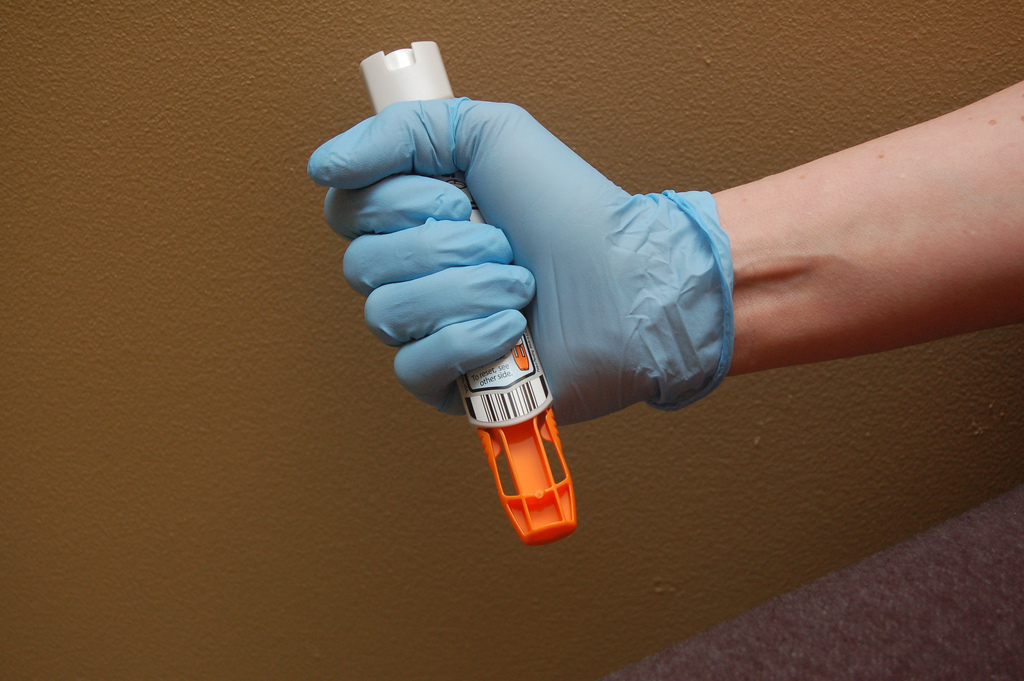This story about Mylan executives raising EpiPen prices astronomically high while also raising their own pay serves to illustrate why ideological approaches to running the healthcare industry are misguided. Healthcare cannot be solved by the free market, and it cannot be solved by government.
Healthcare is an area where the private sector and public tax dollars need to work together. Why? Because incentives are everything. Human beings work toward incentives, both consciously and subconsciously, and so in any system, the intended or unintended system of incentives need to be considered when setting policy.
The ideal incentive in running a business, or bringing a product to market, is to make money. Sure, companies might talk a big game about how they want to change the world, and sometimes they really do, but these concerns are secondary to their main goal of operating at a profit. The ideal incentive for health care providers, however, ought to be to make people healthier. Cost should not exist among their concerns. A healthier population means a stronger, more productive society.
These two incentives are not always compatible, as evidenced by this EpiPen story.
There is a critical role in the healthcare system for private enterprise. Developing drugs requires organizations that move more nimbly and efficiently than government ever could. Innovations in healthcare (new equipment, software, training strategies) are much more likely to arise from private sector disruptors and new advances in technology. Free market competition, were it allowed, could lower prices for all sorts of routine medical procedures (an example: there is no reason why you shouldn’t be able to walk into a lab in a shopping mall and pay $20 to have a blood test done, with results automatically made available online to you and your doctor). Mechanical items related to people’s treatment should be sold openly in stores with no “medical industry markup”. A $5 piece of plastic should cost $5, no matter whether you use it in your kitchen, or in your CPAP machine.
But then, there are instances where free market incentives are unaligned with healthcare incentives, and here, government should take up the slack. Imagine developing a drug that requires a billion in R&D, but for a disease that only affects 5 people out of a million. That’s bad business, unless you know those afflicted can pay you a lot of money for this drug. Should these people be condemned to a horrible life, or even death, because they were unfortunate enough to have a rare condition? This is an instance where the government could supplement R&D costs, or offer a significant prize for a private solution, in the way they have in other industries, like aerospace. Coupled with ideas like that, through legislation, government needs to set rigid guidelines for any company working in the healthcare space (since they are, in a manner similar to telecommunications companies, operating in an area related to the public good).
In the USA, the real obstacle to progress is private insurance companies. Private insurers have taken over the entirety of the healthcare market (in fact, Obamacare mandates this to be true), and they are the reason for astronomical increase in prices. Think of it like this: if you broke your leg, and you knew the cost to put you in a cast and take x-rays was $500, would you even need insurance to cover this scenario? Probably not…you could pay for this like you pay for a car repair, or home repair. That’s no good for insurers, and this is the reason it costs thousands of dollars in the USA to handle even mundane medical situations. They have adjusted the incentives in the market to raise prices in order that their product becomes necessary (and then the other part of their profit strategy is fighting to deny payment when people request it).
Insurance makes sense as security in the face of extraordinary events. If something (e.g., a house catching on fire) happens very infrequently, then fire insurers can collect a small premium from a lot of people who likely won’t need it, which more than offsets their payouts when stuff does happen. This is how they make money; it’s up to the consumer to mitigate that risk with a fire insurance payment, or not. Insurance was never designed to be a credit card for routine procedures, and by using it in this way, we are misusing it. The results are clear: the USA now spends about 1/6th of its GDP on health, far more than any one else, and at the same time, life expectancy has not been going up as much as it has in other rich countries.
The USA needs to get serious about reducing insurers’ role in the system, while at the same time filling the gaps with targeted uses of the free market (encouraging competition where profit and wellness converge), and using the government where those incentives diverge. And then, the government needs to legislate against excessive profiteering (two Tylenol in a hospital should not cost $20, just as an EpiPen should not cost $600). They need to demand certain standards of excellence for any company operating in the space, and offer incentives for solving difficult medical challenges.
In short, government and business need to start working together and realize that a healthy population benefits us all.
